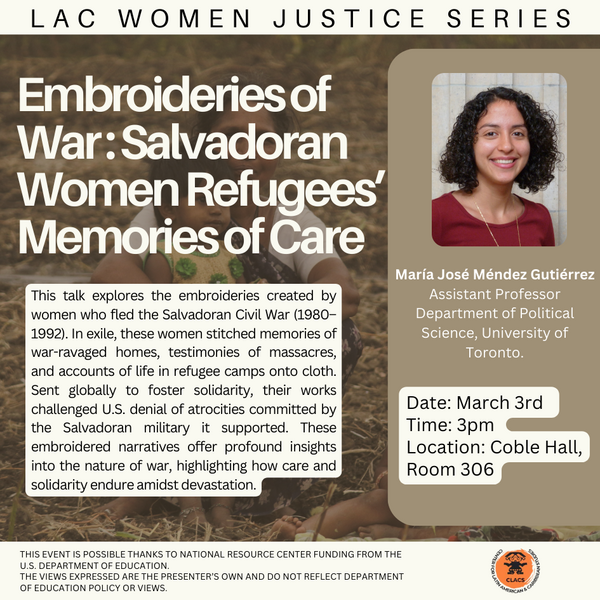LAC Women Justice: Maria Jose Mendez "Embroideries of War: Salvadoran Women Refugees’ Memories of Care"

- Sponsor
- Center for Latin American & Caribbean Studies
- Views
- 335
- Originating Calendar
- Center for Latin American and Caribbean Studies (CLACS)
This talk explores the embroideries created by women who fled the Salvadoran Civil War (1980–1992). In exile, these women stitched memories of war-ravaged homes, testimonies of massacres, and accounts of life in refugee camps onto cloth. Sent globally to foster solidarity, their works challenged U.S. denial of atrocities committed by the Salvadoran military it supported. These embroidered narratives offer profound insights into the nature of war, highlighting how care and solidarity endure amidst devastation.
--------
María José Méndez Gutiérrez is Assistant Professor in the Department of Political Science at the University of Toronto. Her book project examines the gendered political economy of transnational gang violence in Central America. As part of an SSHRC-funded international team, María is working to document and commemorate the history of the Salvadoran Civil War. Recent publications: Acuerpar: The decolonial feminist call for embodied solidarity in Signs (2023) and Studying Gangs in Central and South America: Reflections on Gender and Researcher Positionality in The Oxford Handbook of Gangs and Society (2024).